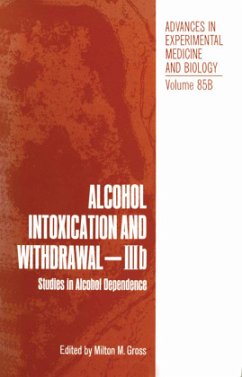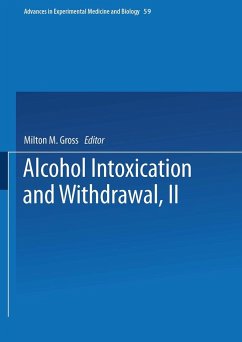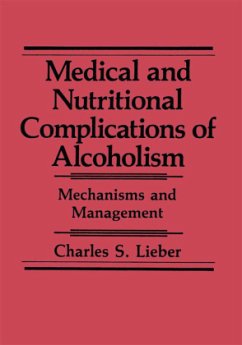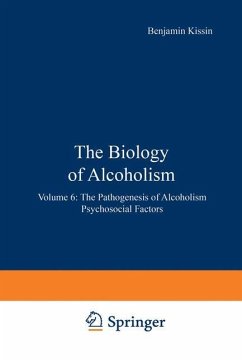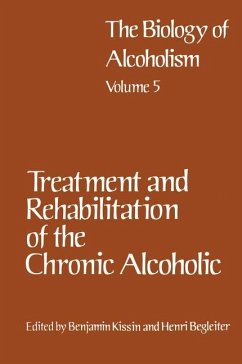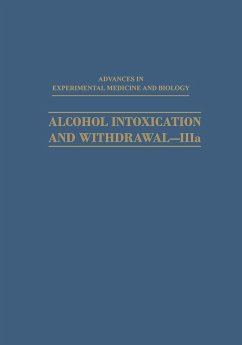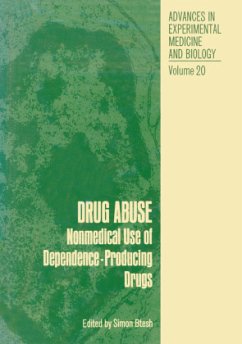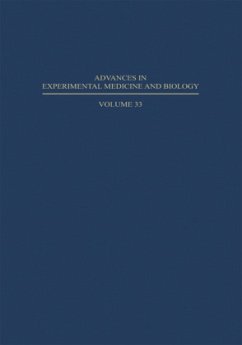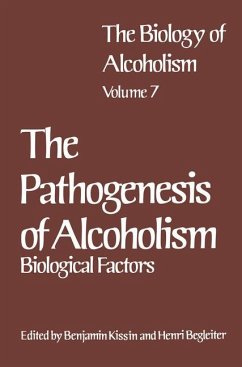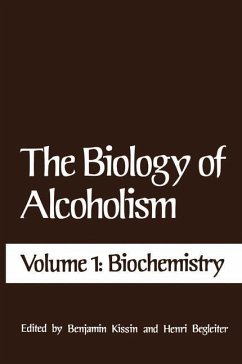
Alcohol Intoxication and Withdrawal I
Experimental Studies

PAYBACK Punkte
20 °P sammeln!
The contributions to this volume clearly indicate the momentum, quality, liveliness and diversity of the research effort being di rected toward deepening our understanding of tqe alcohol withdrawal syndrome. This area of study has gained increasing interest and attention to the point where it seemed reasonable to devote a spe cial section to it at the 30th International Congress for Alcoholism and Drug Dependence in Amsterdam in September, 1972. Our goal was to share our most recent findings and stimulate others to join in the effort. With few exceptions, the papers in this publication present...
The contributions to this volume clearly indicate the momentum, quality, liveliness and diversity of the research effort being di rected toward deepening our understanding of tqe alcohol withdrawal syndrome. This area of study has gained increasing interest and attention to the point where it seemed reasonable to devote a spe cial section to it at the 30th International Congress for Alcoholism and Drug Dependence in Amsterdam in September, 1972. Our goal was to share our most recent findings and stimulate others to join in the effort. With few exceptions, the papers in this publication present new data. It had been hoped that the volume would appear by the end of 1972. However, the eagerness of many of the contributors to extend their investigations made this target date impossible. Several of the papers were not presented in the section but were presented elsewhere in the Congress. However, because of their particular relevance to the topic they have been included with the generous consent of the authors.





